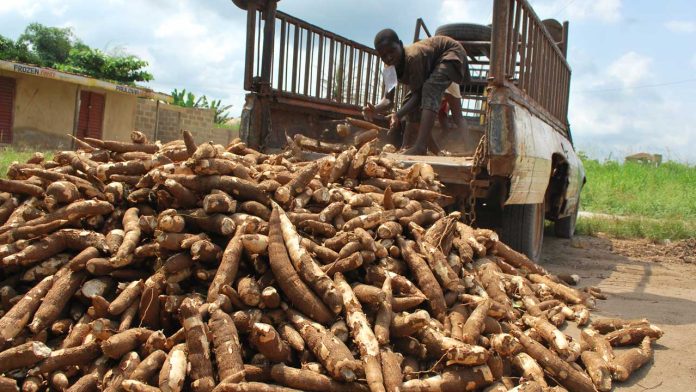News Investigators/ Some residents of Nasarawa State have urged cassava processors to desist from using harmful chemicals in the production of garri (granulated flakes) and other cassava-based food items to safeguard public health.
They made the appeal in separate interviews with the News Agency of Nigeria (NAN) on Friday in Keffi Local Government Area of the state.
NAN reports that cassava is processed into several staple foods, including garri, akpu (fermented dough) and cassava flour.
While some processors rely on traditional methods, others allegedly use substances such as chlorine, nails, detergent and other hazardous materials to hasten production.
Mr Johnson Bello, a resident of Keffi, condemned the use of chemicals, saying that such practices endanger consumers’ health.
“The way and manner some people process cassava is unhealthy. Using chemicals to quicken the fermentation process is dangerous and should be stopped,” he said.
Another resident, Mallam Auwal Mohammed, called on the Nasarawa State Government and relevant agencies to investigate and sanction anyone found guilty of using chemicals.
“Government and the National Agency for Food Drug Administration and Control (NAFDAC) should look into it. Consumers should not be served chemically processed food because some producers want quick profits.
“This practice is causing stomach upset and diarrhoea. Authorities should also enlighten the public on the dangers,” he said.
However, a garri producer, Hajiya Mairo Bello, dismissed the allegations, saying that genuine cassava processors do not use chemicals in their operations.
“We have been in this business for many years. Those making such claims should visit our processing sites to see how we work. We don’t use chemicals,” she said.
Another processor, Mrs Adama Jibrin, also denied the allegation, saying that responsible producers were aware of the health risks associated with using chemicals.
“Cassava processing relies on natural fermentation by microorganisms. We do not use any chemicals because we know it is unsafe,” she explained.
NAN


